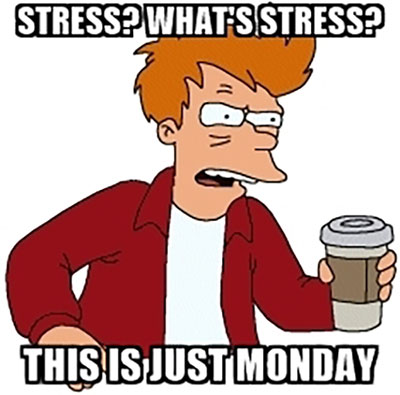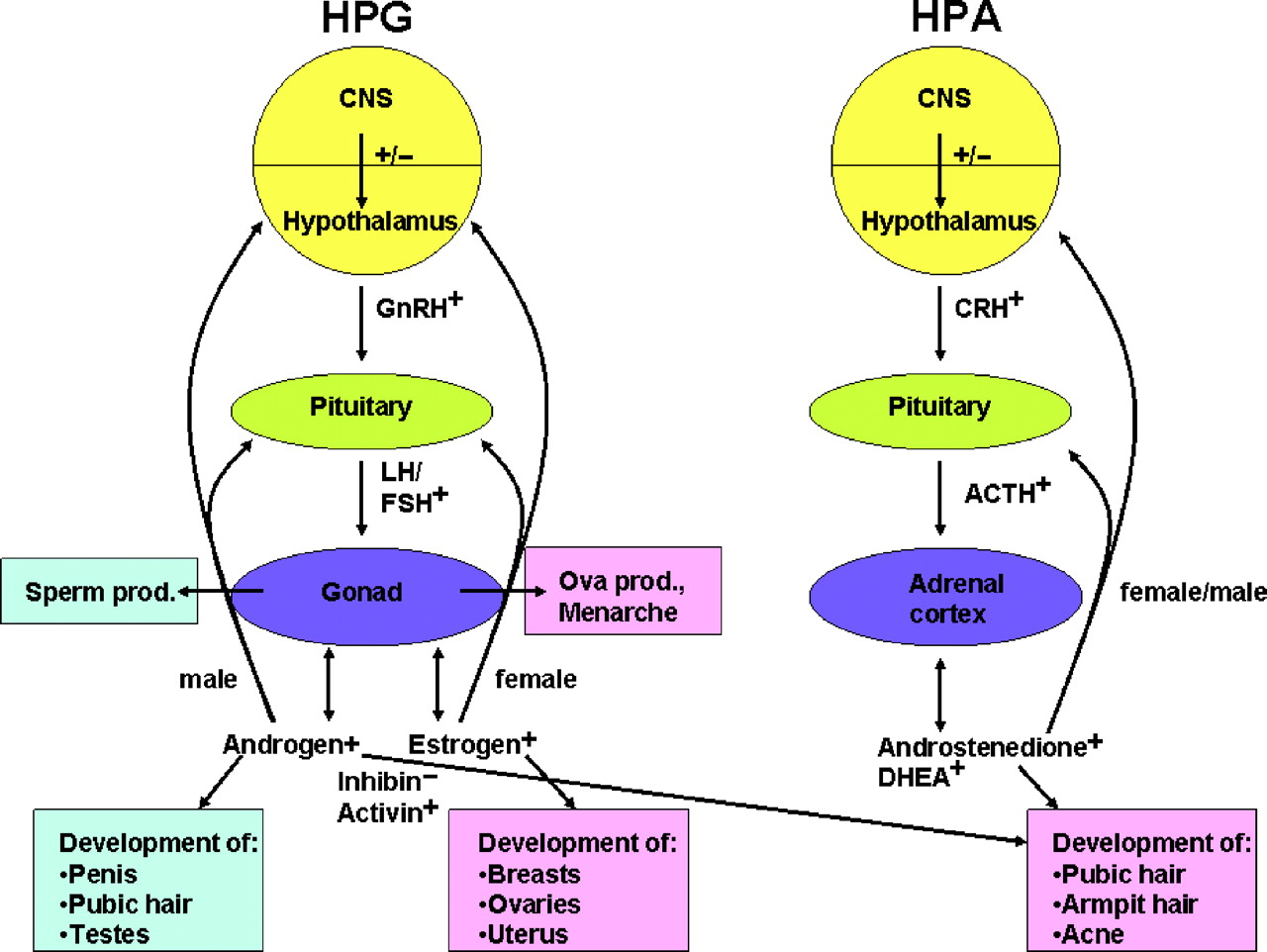Life ext. 5 - How stress accelerates aging, leads to cognitive impairment and reduces the performance of the brain.

In this article, we consider a scientifically proven biomechanics of stress and how it physically affects our body as a whole and the brain in particular. As an uncontrolled experience of stress increases the likelihood of illness and weakens our mind.
There will be no psychology, only studies that rely on the physical parameters of our body. Only biochemical processes and what paths they go through and how they physically affect the body.
If a person becomes stupid, it does not affect his breathing, digestion, imagination, desires, and the like. But the power over oneself is weakening. He no longer understands his responsibilities, is not able to sort out his surroundings and can not give an account of the fact that it is better to part with such a life. All this requires a solid mind, which is already lost forever. So, you need to hurry, not only because we are getting closer to death, but also because during our life we are beset by the loss of the ability to properly understand and observe things.
Marcus Aurelius "Reflections" (170 AD)
What is stress
Stress is a state of increased stress that occurs as a complex reaction of the body when exposed to extreme factors.
For example, when a real danger threatens us, or we think that it threatens, our body, as a combination of mind and body, triggers a complex of reaction-responses in order to balance the situation. Evolutionarily, the best way to achieve balance was to either escape or attack. Accordingly, many reactions are launched in our body.
Stress response mechanisms
When we find ourselves in situations that are stressful for us (really or we think so), our body reacts to it in a complex way, simultaneously activating different mechanisms of the body and brain.
Mechanism No. 1 Axis of the hypothalamus-pituitary-adrenal cortex.
In English hypothalamic – pituitary – adrenal axis (HPA axis or HTPA axis)
This axis starts working when it receives a signal from the amygdala about stress. The hypothalamus secretes the hormone CRH (corticoliberin), which acts on the pituitary gland and it releases ACTH (adrenocorticotropic hormone), which causes the release of the stress hormone cortisol from the adrenal glands. Due to this, the muscles and the brain receive additional energy, increasing physical and mental abilities.

Mechanism No. 2 Axis of the hypothalamus-pituitary-gonad (sex glands)
Activation of this axis also occurs through the hypothalamus, which secretes the hormone Gnadoliberin. This hormone triggers the release of pituitary luteinizing hormone + follicle-stimulating hormone. And these hormones act on the sex glands by activating the release of testosterone and estrogen.

Mechanism No. 3 Simpato-adrenol axis (Sympathoadrenal system)
The English term is Sympathetic Adrenal Medullary Axis (SAM).
Under stress, neural activity in the blue spot and other regions of the brain stem stimulates the sympathetic nervous system, which activates the adrenal medulla , which in turn activates the production of norepinephrine and adrenaline and releases them into the blood.
Blood pressure, sugar and cholesterol levels are rising, giving us energy for an enhanced response to stress. Palpitations and breathing become faster in order to run faster or beat harder, pupils dilate to see better where to hide or where to heal. If at this moment we are surfing or boxing or doing some other physical activity, then the resulting energy is consumed and, gradually, the levels of stress hormones gradually return to normal. (List of literature 27 + channel telegrams #stress tag)

Mechanism №4 Immune system
Under stress, the immune system is activated by the SAM axis. Selected norepinephrine affects the receptors of immune cells, activating the transcription factor NF-κB . This factor through a series of intracellular reactions contributes to the synthesis of proinflammatory cytokines, which leads to inflammation reactions (this is bad and in the long term leads to disruption of the brain and other systems)

These are only the main responses of our body to stress, in addition, many adverse reactions occur. ( source )
All of these reactions are designed so that we can survive in stressful situations that have evolved a lot of physical exertion — either to hide or fight.
Next, we consider the consequences of the constant effects of chronic stress on us.
What causes chronic stress
What happens in real life of a modern city dweller? The stress response mechanism is triggered when confronted with any daily situations that we recognize as stressful:
- late for work
- bitcoin rate dropped, and we bought it
- Naham in a cafe
- written off 5 dollars for the application that we did not want to buy
- ... ..
The process of the response of our body is always the same - all the mechanisms discussed above are activated.
That is, it turns out that if we recognize the situation as stressful, then a series of processes is triggered in our body, which should provide increased physical activity and a comprehensive response to a threatening situation.
However, in the modern world, we usually sit and do nothing. Most threatening situations are mental and do not require a physical response.
Constant stimulation of the systems, which should activate us physically, is the cause of many problems with health and aging.
List of main problems that cause chronic stress:
- accelerates aging (list of literature 29-31)
- increases the likelihood of cancer (list of literature 28)
- cardiovascular diseases (cause of death # 1 in the world) (list of literature 10,11)
- headaches, migraine (list of literature 12)
- multiple sclerosis is a fairly common disease, the brain is impaired, in Russia more than 150,000 people (list of literature 13)
- Parkinson's disease, the second most common disease affecting the brain after Alzheimer's (list of literature 14, 15, 16)
- Alzheimer's disease (list of literature 17-21)
- skin aging (list of literature 1)
- violation of sexual function, decreased libido (list of literature 22, 23, 24)
- and several other diseases.
OK! We understand how stress affects the body and the brain (the four mechanisms discussed above) and we understand that chronic stress accelerates aging, increases the likelihood of bad diseases and impairs brain function.
Now we need to find out - how to determine whether we are experiencing constant stress or not?
How to determine whether we are prone to chronic stress
Despite the fact that the mechanism of our body's reaction to stress is the same for everyone, the perception of the situation as stressful is completely individual.
Someone caught in a traffic jam and being late for work will experience stress, some even from such a hypothetical opportunity, on the way to work will experience daily stress, and someone in both situations will just go to work.
To date, there are no proven methods for testing our body on whether it is under chronic stress.
There are psychological techniques where we fill out a questionnaire and by the sum of points of answers we get the level of our stress. These techniques have been used for many years and, with some degree of confidence, can give an answer to whether we have chronic stress or not.
The most used method is the Holmes and Reich questionnaire https://www.mindtools.com/pages/article/newTCS_82.htm
This scale was created in 1967 and has since been used to assess the risk of disease due to stress.
This scale shows only the overall risk and does not take into account the individual characteristics of the psyche, although during its use a lot of data have been accumulated and the data are confirmed in principle.
SOON! In our Lifext application, this questionnaire will be in Russian and its results will be taken into account when recommending on increasing life expectancy. Follow the news in our channel https://lifext.ru/tg
Future
Soon we will be able to determine if we have chronic stress more accurately with the help of tests. Right now, research is underway on various methods.
For example, an interesting study “Anti-aging protein klotho and chronic psychological stress” (list of literature 26).
In the study, in order to clarify the relationship between the level of this protein and chronic stress, 178 healthy women were examined, some with children with autism (high stress) and some with ordinary children (low stress).
Women with high chronic stress had significantly lower levels of klotho protein.
In conclusion, the authors of this study (from 2015, USA) suggested that after additional studies, the level of klotho protein can be used as a marker of psychological health.
That is, the authors of the study could not take any tests from people, determine which of them is subject to chronic stress, and who is not and conduct a study. They had to rely on external conditions.
As long as we do not have reliable markers, we can use psychological techniques to physically determine the level of chronic stress.
This is just one of the studies; they are also trying to examine the hair, where it is possible to determine at what periods we had stress, how it developed, and so on. But this technique is also only in development.
How to manage stress
Based on the material above, we can conclude that if our goal is to increase the duration of an active life, then we need to learn how to manage stress. By this we mean that we must be able to stop (reduce) chronic stress, which in our time is usually caused by more internal causes than real external threats.
This will be the next article.
After 2-3 weeks, we will talk in detail about how to reduce our stress level, consider the evidence and mechanisms of the proposed method, and give instructions on how to use it.
All this time we will post in detail parts of our research, primary sources, hypotheses and news in our channel telegrams - Wellcome!
More related articles
- Life extension, part 1 - Brain Health
- Life extension, part 0.1 - Brain and body health over the long term
- Meditation - the ancient hacking of reality in modern times
- Life extension, part 3 - Modern views on the aging process
- Life extension - 4. Wonderful pills for old age, are we investigating whether to take
- Life ext. 5 - How stress accelerates aging, leads to cognitive impairment and reduces the performance of the brain.
- Vitamin D - the mechanism of action and whether to take supplements
- Fish oil and omega-3 - the mechanism of action and whether to take supplements
- Trans fat is finally banned in the US ... and the ethical question for corporations
Life Extension App
In it, you can store all the analyzes, receive news about life extension techniques and personal recommendations of experts - Android
All Articles